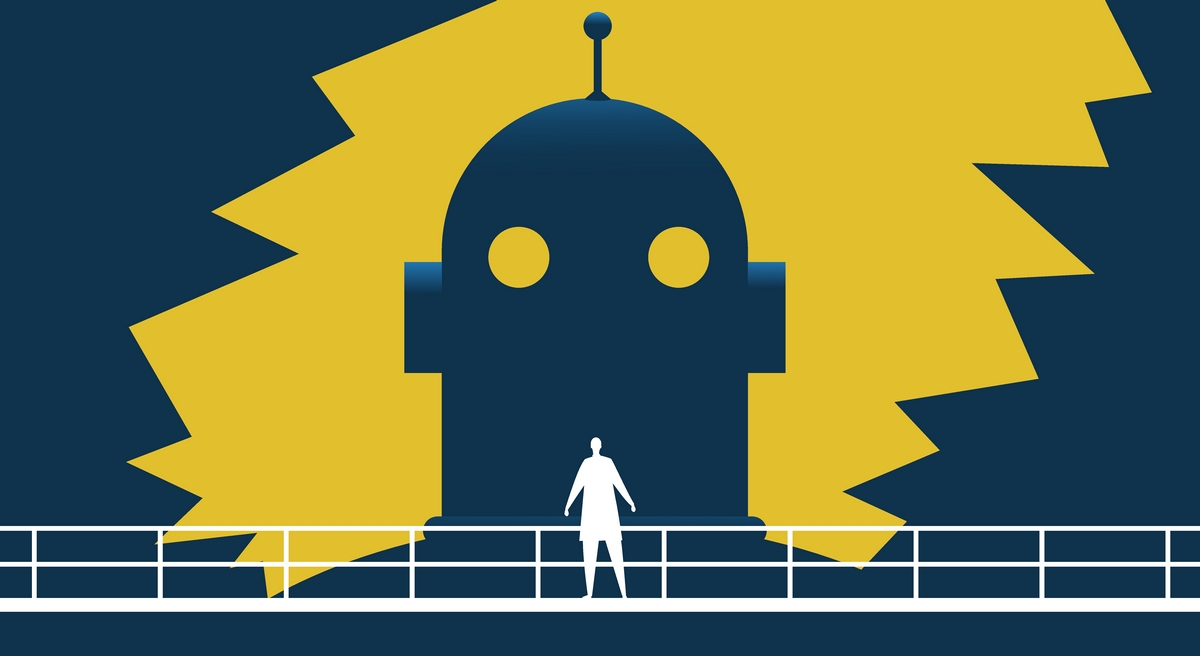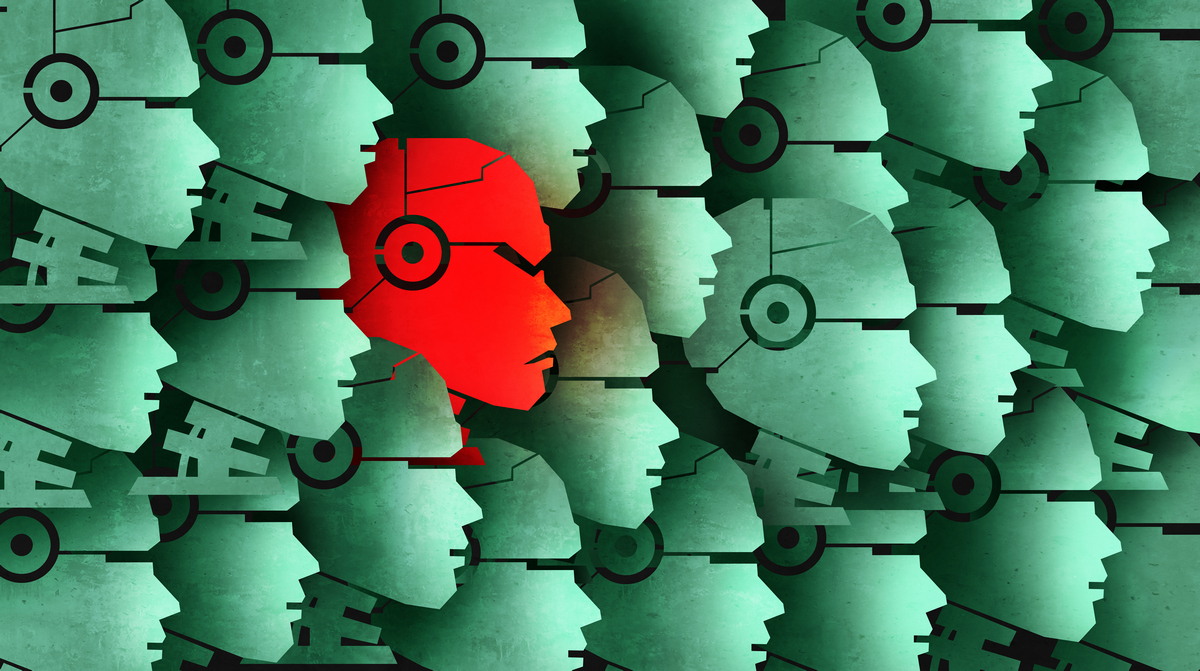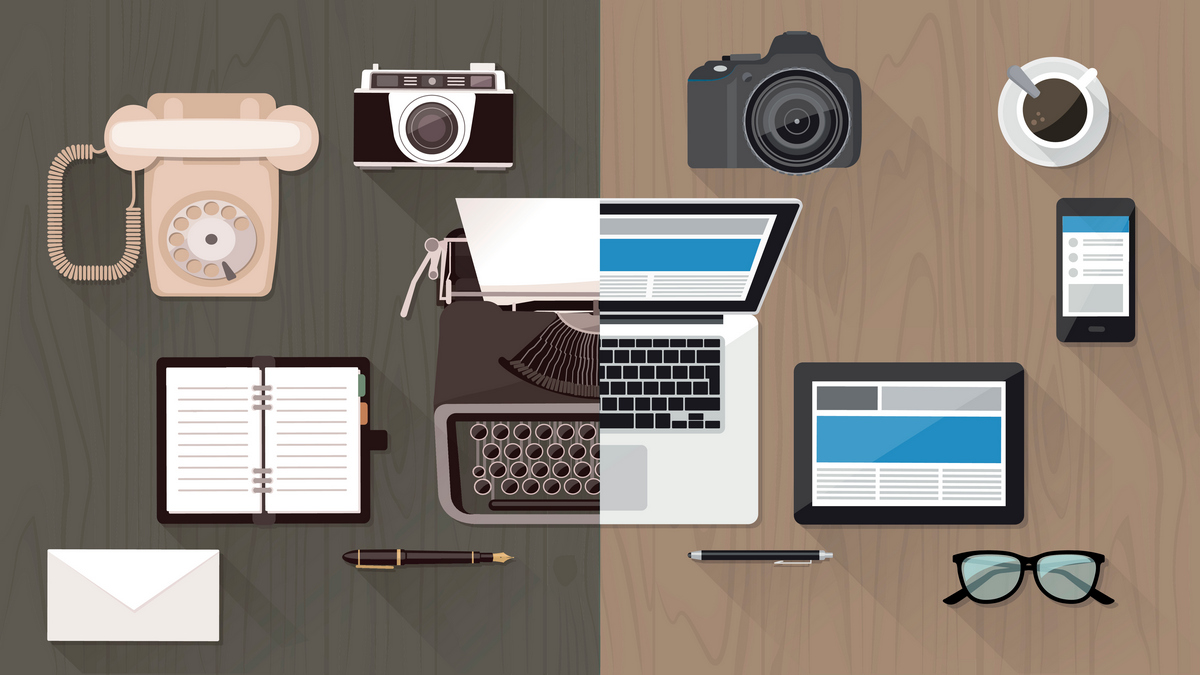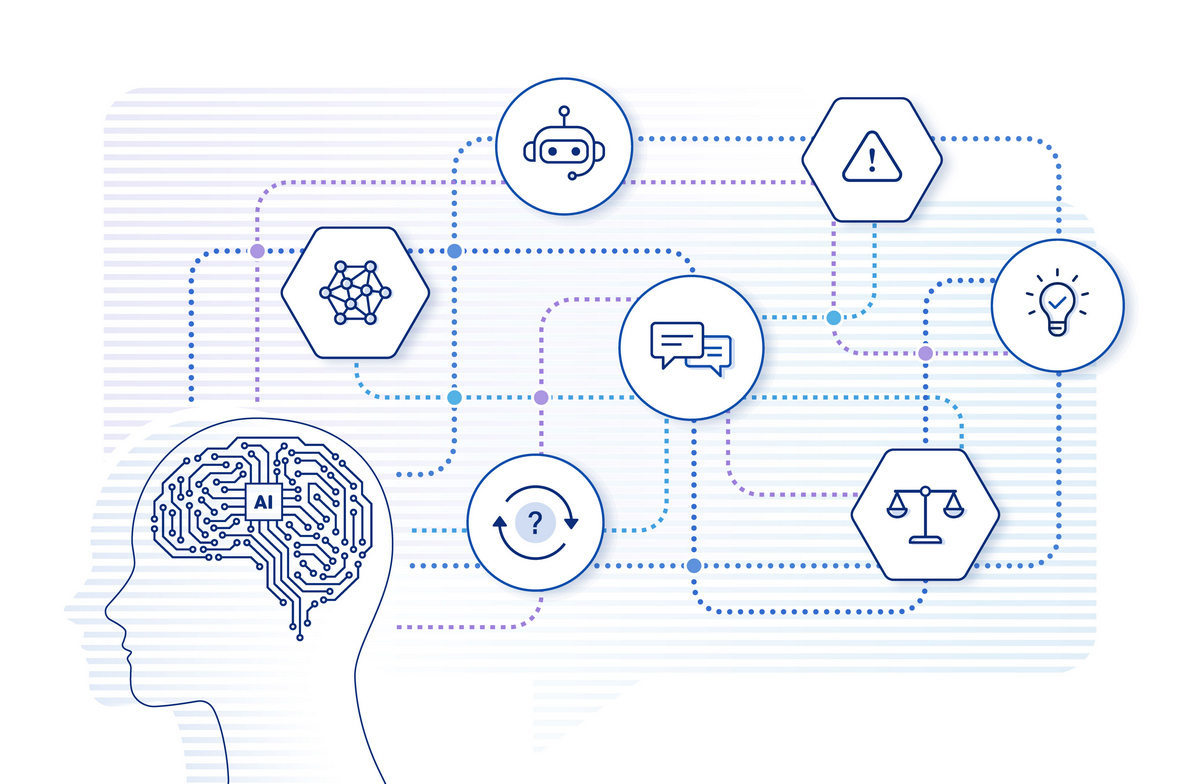Ah, artificial intelligence. The boogeyman of our times, according to some. OpenAI just dropped GPT-4o, or as TechCrunch called it, “ChatGPT on steroids.” This new AI wunderkind can handle text, speech, and video with the speed of sound. So, the AI skeptics went into a virtual cardiac arrest with worries. You’ve heard their whispers and screams: “AI is going to conquer the world!” or “It will take over humans!” Some even fear that AI will regress humanity back to the days when tying shoelaces was a challenge. Hollywood only adds to these worries with movies like Ex Machina painting AI as the villain. And then there’s the famous Elon Musk, who has long been outspoken about the dangers posed by artificial intelligence and warned it could even lead to our peril.

But let’s take a step back, breathe, and inject a bit of humor and logic into this conversation. AI isn’t out to get us. It’s here to stay, so we better get used to that thought. Let’s debunk some of the scariest scenarios one by one and help you see AI for what it is: a powerful tool that, when used responsibly, can make our lives better.
Hollywood loves a good “bad guy, ” and AI makes for a compelling one. From the evil HAL 9000 in 2001: A Space Odyssey to the relentless Terminators, the silver screen has given us plenty of reasons to fear AI.
“I, Robot,” “Westworld,” “A.I.,” “Her,” “Wall-E,” “Finch,” “M3gan,” “CHAPPiE,” “The Matrix,” “Blade Runner,” and “Black Mirror” all depict AI as the villain. How many movies show AI as the savior? Can you name at least one? Well, here’s the thing: Hollywood isn’t real life. If it were, we’d be dodging meteors every other week, and vampires would be a serious public health concern.
Yes, AI has incredible potential, but it’s not inherently evil. Like any tool, its impact depends on how we use it. So, Hollywood is now embracing another side of AI: harnessing its power to produce movies and shows faster and cheaper.
So, let’s not confuse sci-fi thrillers with the reality of AI, which is far more mundane and beneficial.

Elon Musk is a genius. There’s no denying that. But even geniuses can have their quirks. Musk has long been outspoken about the dangers of artificial intelligence, comparing it to a “digital God” and “summoning the demon” that could lead to “civilization destruction.” Musk’s warnings, while worth noting, are a bit like worrying that your toaster will suddenly become self-aware and burn down your house. Possible? Technically, yes. Likely? Not really.
What’s even more interesting is that, on the one hand, Musk warns of AI doom, yet on the other, he funds his own AI endeavors. His latest company, artificial intelligence startup xAI, is in talks with Oracle on a multiyear, $10 billion cloud-servers deal, according to Reuters. One might guess that Musk’s intentions are to save the world from artificial intelligence with a more intelligent version, or perhaps something else entirely.
While it’s important to consider potential risks, it’s equally important to balance those concerns with facts and rational thinking. According to a report by PwC, AI could contribute up to $15.7 trillion to the global economy by 2030. This isn’t the stuff of nightmares – it’s the stuff of economic growth and innovation.
Some people worry that AI will make us stupid and helpless, turning us back into metaphorical apes. The fear is that reliance on AI will corrupt our critical thinking and problem-solving abilities. This is like worrying that calculators will make us forget basic arithmetic.
Nah, AI won’t make us dumb unless we let it. Instead, AI can help us be more efficient and effective. It takes care of repetitive tasks, allowing us to focus on more complex endeavors that require uniquely human skills like creativity, strategy, and emotional intelligence. Consider AI your very competent, never-tiring assistant who handles the grunt work so you can concentrate on what truly matters and shine in your role. Using it correctly and with care could make us appear more intelligent.
A study by McKinsey found that AI could automate 45% of the activities people are paid to perform. It doesn’t mean jobs will vanish. To investigate this topic more thoroughly, we should look back at history. This brings us to our next myth that AI will steal our jobs.
During the early 19th century, the Industrial Revolution brought about significant technological advancements, such as the steam engine, power looms, and spinning frames. These innovations revolutionized manufacturing and production processes, drastically increasing efficiency and output. However, not everyone welcomed these changes.
A group known as the Luddites emerged in England around 1811-1816. These skilled textile workers were threatened by the new machinery, which they feared would lead to mass unemployment and the devaluation of their craft. In protest, they began destroying machinery and sabotaging factories. While their actions highlighted the immediate social and economic upheaval caused by technological advancement, history shows that the Industrial Revolution ultimately led to the creation of new industries and job opportunities.

Fast-forward to the 20th century, and we see another wave of technological innovation with the advent of automation and computerization. In the 1950s and 1960s, there were widespread fears that automated assembly lines and early computers would cause mass unemployment and economic decline. However, rather than eliminating jobs, automation and computerization transformed the labor market. They created demand for new types of jobs, such as computer programming, systems analysis, and IT support.
The rise of the information technology industry has generated millions of jobs worldwide, demonstrating that technological progress can lead to economic growth and employment opportunities.
The digital revolution of the late 20th and early 21st centuries significantly changed how we communicate, access information, and conduct business. It disrupted the print journalism industry and threatened brick-and-mortar retail stores. However, the rise of the internet has also created entirely new sectors, such as e-commerce, social media, and digital marketing.
In this context, AI is just the next step in the ongoing industrial evolution. Think of today’s artificial intelligence as yesterday’s steam engine, airplane, laptop, or mobile phone – it’s a natural technological progression.
Historically, technology has always created more jobs than it has destroyed. According to the World Economic Forum, AI and automation could displace 85 million jobs by 2025, but they could also create 97 million new ones in that same timeframe. These new roles will likely require different skills, emphasizing the importance of education and training to prepare the workforce for the future.
Another common fear is that AI will aid in the rise of crime and terrorism. While it’s true that any technology can be misused, it’s not a reason to dismiss AI altogether. The internet, for example, has been used for both good and bad purposes, but no one is suggesting we go back to pre-internet days.
Instead of fearing AI, we should focus on implementing robust safeguards and ethical guidelines to prevent misuse. It’s about being proactive, not paranoid. For instance, AI in cybersecurity is being used to detect and neutralize threats faster than any human could. A report by Capgemini found that 69% of organizations believe AI will be necessary to respond to cyber threats in the future.

We can’t talk about AI without mentioning ethics. Remember Isaac Asimov’s Three Laws of Robotics? While we may not need to follow them to the letter, the principle of setting ethical boundaries remains crucial. We must ensure that AI is developed and deployed responsibly, with a focus on benefiting humanity and minimizing harm.
Establishing guidelines and regulations can help prevent misuse and ensure that AI contributes positively to society. It’s about creating a framework that fosters innovation while safeguarding ethical standards. The European Commission has proposed a comprehensive regulatory framework for AI to address both opportunities and risks.
Implementing AI responsibly means taking a thoughtful approach to its development and deployment. This involves sticking to ethical guidelines and continuously monitoring and evaluating AI systems to ensure they function as intended.
Transparency is key. Companies should be open about how AI is being used and involve diverse stakeholders in the development process. This collaborative approach can address potential concerns and build trust in AI technologies.
AI isn’t the villain of some dystopian future. It’s a tool – a powerful one – that can help us achieve more than we ever thought possible. By debunking the myths and focusing on the facts, we can embrace AI as a natural and beneficial evolution in technology. So, let’s stop fearing the future of AI and start building it together – responsibly and ethically.
At Sprinterra, we believe in AI’s power to transform businesses and improve lives. We’re committed to responsible and ethical AI implementation.
Let Sprinterra Software Engineers and Digital Business Analysts be your guide in navigating the world of AI. Sprinterra can help you unlock AI’s and your company’s full potential.
Contact us today, and let’s build a smarter, more efficient future together.
Get the latest insights on exponential technologies delivered straight to you
© 2025 Sprinterra. All rights reserved.